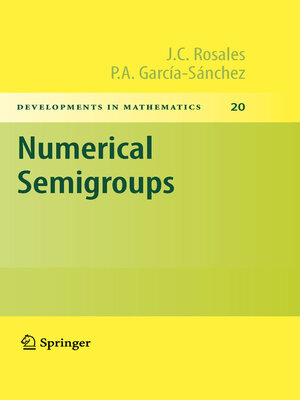
Sign up to save your library
With an OverDrive account, you can save your favorite libraries for at-a-glance information about availability. Find out more about OverDrive accounts.
Find this title in Libby, the library reading app by OverDrive.



Search for a digital library with this title
Title found at these libraries:
| Library Name | Distance |
|---|---|
| Loading... |
Let N be the set of nonnegative integers. A numerical semigroup is a nonempty subset S of N that is closed under addition, contains the zero element, and whose complement in N is ?nite. If n ,...,n are positive integers with gcd{n ,...,n } = 1, then the set hn ,..., 1 e 1 e 1 n i = {? n +··· + ? n | ? ,...,? ? N} is a numerical semigroup. Every numer e 1 1 e e 1 e ical semigroup is of this form. The simplicity of this concept makes it possible to state problems that are easy to understand but whose resolution is far from being trivial. This fact attracted several mathematicians like Frobenius and Sylvester at the end of the 19th century. This is how for instance the Frobenius problem arose, concerned with ?nding a formula depending on n ,...,n for the largest integer not belonging to hn ,...,n i (see [52] 1 e 1 e for a nice state of the art on this problem).







